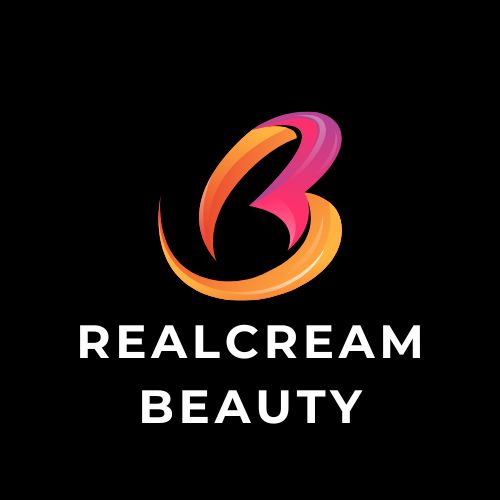Teeth whitening myths debunked: Contrary to popular belief, teeth whitening does not harm tooth enamel or existing dental work, such as crowns, veneers, or fillings. While using a professional or dentist-approved product is crucial to avoid enamel erosion, teeth whitening itself is not dangerous or damaging to teeth.
Additionally, natural methods such as oil pulling and using baking soda with water or hydrogen peroxide can effectively remove surface stains on teeth. It’s essential to dispel these myths and understand that it is possible to safely whiten teeth without causing any harm.
Teeth whitening has become increasingly popular as people strive for a brighter, more confident smile. However, along with its rise in popularity, many myths and misconceptions have emerged regarding this cosmetic dental treatment. We will debunk 10 common teeth whitening myths to provide accurate information and help individuals make informed decisions about their oral care. By dispelling these myths, we aim to shed light on the truth behind teeth whitening and highlight its safety and effectiveness when done correctly. Let’s separate fact from fiction and uncover the truth about teeth whitening.

Credit: www.towerdental.com.au
Myth: Teeth Whitening Causes Tooth Sensitivity
Contrary to popular belief, teeth whitening does not cause tooth sensitivity. When done properly by a professional cosmetic dentist, this treatment is safe and effective for achieving a brighter smile.
Explanation Of The Myth
One common myth surrounding teeth whitening is that it causes tooth sensitivity. Many people believe that the chemicals used in whitening products can erode the enamel of the teeth, leading to sensitivity and pain. However, this is not entirely true.
The sensitivity experienced after teeth whitening is often temporary, and it occurs because the whitening agents temporarily open up the pores of the enamel, allowing the bleaching agents to penetrate and remove stains from the teeth. Once the pores close again, the sensitivity subsides.
It’s important to note that teeth whitening products, when used correctly, do not harm the teeth or cause long-term sensitivity. In fact, advancements in dental technology have led to the development of scientifically proven whitening systems that are safe and effective.
Using an approved whitening system, like Opalescence™, can ensure that your teeth are safely and effectively whitened without causing any harm or sensitivity to the enamel.
Scientifically Proven Whitening System
Opalescence™ is a whitening system that has been scientifically proven to whiten teeth effectively and safely. It uses either carbamide peroxide or hydrogen peroxide as a whitening agent.
The active oxygen molecules in the whitening agent can penetrate the enamel of the teeth and react with the discolored molecules that cause tooth discoloration. This reaction breaks down the stains, resulting in a whiter smile.
Opalescence™ is a trusted and dentist-approved whitening system that ensures professional-grade results without causing any harm to the enamel or causing tooth sensitivity.
When considering teeth whitening, it’s important to choose a product or treatment that is backed by scientific research and approved by dental professionals. This will ensure that you achieve the desired results while maintaining the health and integrity of your teeth.

Credit: www.keppeldental.com.au
Myth: Teeth Can Be Naturally Whitened
Teeth cannot be naturally whitened, debunking the myth that certain home remedies or natural methods can effectively remove stains and discoloration. Professional teeth whitening procedures or dentist-approved products are the safest and most effective ways to achieve a brighter smile.
Myth: Teeth can be naturally whitened H3: Use of baking soda to whiten teeth One of the most popular DIY methods for teeth whitening is the use of baking soda. This household staple is believed to have natural whitening properties, but is it really effective? Contrary to popular belief, baking soda alone is not sufficient to whiten teeth significantly. Yes, it can remove surface stains on your teeth to some extent, but it cannot penetrate deep within the enamel to remove intrinsic stains. H3: Oil pulling as a stain removal method Another natural remedy that has gained traction in recent years is oil pulling. This ancient practice involves swishing oil (usually coconut or sesame oil) around in your mouth to remove stains and promote oral health. While oil pulling can help maintain oral hygiene and remove some bacteria from the mouth, there is no scientific evidence to support its effectiveness in whitening teeth. It may help with reducing plaque buildup and improving gum health, but it won’t give you significantly whiter teeth on its own. To achieve noticeable teeth whitening results, it is best to consult a dental professional and explore professional whitening treatments that are backed by science and proven to be effective in brightening your smile. At the end of the day, it’s important to separate fact from fiction when it comes to teeth whitening. Don’t be swayed by the allure of natural remedies that may not live up to their claims. Instead, opt for professional solutions that can give you the brighter smile you desire.Myth: Teeth Whitening Damages Enamel And Is Dangerous
Contrary to popular belief, teeth whitening does not damage enamel nor is it dangerous. When done properly with a reputable dentist-approved product, teeth whitening is a safe and effective way to achieve a brighter smile.
One of the most common myths surrounding teeth whitening is the belief that it can damage the enamel and pose a danger to your oral health. However, this is far from the truth. While it is true that improper or excessive use of teeth whitening products can cause tooth sensitivity, when used correctly and with dentist-approved products, teeth whitening is a safe and effective way to enhance your smile.
Importance Of Choosing A Dentist-approved Product
When it comes to teeth whitening, it is crucial to choose a dentist-approved product. These products have undergone rigorous testing to ensure that they are safe for use and will not harm your enamel. Dentist-approved teeth whitening products typically contain a lower concentration of active whitening ingredients, reducing the risk of sensitivity.
Moreover, dentist-approved teeth whitening products are specifically formulated to target stains and discoloration without compromising the integrity of your enamel. They provide gentle yet effective results, allowing you to achieve a brighter smile without sacrificing your oral health.
Whitening Crowns, Veneers, And Fillings
One common concern when it comes to teeth whitening is how it may affect dental restorations such as crowns, veneers, and fillings. Fortunately, teeth whitening treatments can still be effective even if you have these restorations.
Crowns, veneers, and fillings are made from materials that are resistant to stains. This means that they will not respond to traditional teeth whitening treatments in the same way as natural teeth. However, they can be professionally polished by a dentist to remove any surface stains and maintain their original shade.
It is important to consult with your dentist before undergoing any teeth whitening treatments if you have dental restorations. They will be able to assess your individual situation and provide personalized recommendations on the best course of action.
In conclusion, the myth that teeth whitening damages enamel and is dangerous is simply not true. By choosing a dentist-approved product and considering the unique needs of your dental restorations, you can safely and effectively achieve a brighter, more confident smile.

Credit: www.drmarcano.com
Myth: Whitening Toothpastes And Rinses Are Sufficient
Contrary to popular belief, using whitening toothpastes and rinses alone is not sufficient for teeth whitening. These products may provide some benefits, but professional treatments from a cosmetic dentist are usually necessary for effective and lasting results.
Discussion On The Effectiveness Of Whitening Toothpastes And Rinses
Many people believe that using whitening toothpastes and rinses alone can effectively whiten their teeth. However, this is a common myth that needs to be debunked. Whitening toothpastes and rinses are not sufficient on their own to achieve significant teeth whitening results.
These products usually contain mild abrasives or chemicals that help remove surface stains from the teeth. While they may provide some slight improvement in tooth color, they are not designed to penetrate the enamel and whiten the deeper layers of the tooth. Therefore, for those looking for noticeable teeth whitening, professional whitening treatments are necessary.
Key takeaway: Whitening toothpastes and rinses can help remove surface stains but are not effective for deeper teeth whitening.
Concerns About Enamel Damage And Dehydration After Whitening
One of the concerns associated with teeth whitening is the potential damage to enamel and dehydration of the teeth. While these concerns are valid, they are largely exaggerated and can be minimized with proper techniques and guidance from a dental professional.
Enamel damage: It is true that some teeth whitening methods, particularly those that use high concentrations of hydrogen peroxide, can temporarily weaken the enamel. However, reputable dental professionals use whitening gels with controlled concentrations to minimize this risk. Additionally, the enamel naturally remineralizes and strengthens over time, so any temporary weakening is usually not a cause for long-term concern.
Dehydration: Teeth whitening treatments can cause temporary tooth sensitivity, which some people associate with dehydration. However, this sensitivity is usually a result of the whitening gel reaching the nerve endings in the teeth. Dental professionals usually provide desensitizing agents or recommend specific toothpaste to alleviate this discomfort, ensuring the process is as comfortable as possible.
Key takeaway: Properly administered teeth whitening treatments minimize the risk of enamel damage and dehydration, making them safe and effective when done under professional supervision.
Frequently Asked Questions On 10 Teeth Whitening Myths Debunked
Why Do Dentists Not Recommend Teeth Whitening?
Teeth whitening treatments, if not done by a professional dentist, can cause tooth sensitivity and pain. This can further damage the enamel and make teeth more prone to staining. It is important to consult with a cosmetic dentist for safe and effective whitening options.
What Is Scientifically Proven To Whiten Teeth?
Opalescence™ is a scientifically proven, safe, and effective whitening system. It uses either carbamide peroxide or hydrogen peroxide to penetrate the enamel and react with discolored molecules that cause tooth discoloration. Baking soda can also be used with water or hydrogen peroxide to remove surface stains on teeth.
Can You Naturally Whiten Your Teeth?
Yes, you can naturally whiten your teeth. Baking soda mixed with water can remove surface stains. Oil pulling is another method that can help remove stains. However, it’s important to note that natural methods may not be as effective as professional whitening treatments.
Can You Use Baking Soda To Whiten Teeth?
Baking soda can be used with water or hydrogen peroxide to remove surface stains and enhance whitening effects. It can be used with regular toothpaste and is found in some commercial teeth whitening products.
Conclusion
Tooth whitening is a common practice that many individuals engage in to achieve a brighter smile. However, there are numerous myths surrounding this topic that need debunking. From the belief that whitening products erode enamel to the misconception that crowns, veneers, and fillings can be whitened, it’s important to separate fact from fiction.
By understanding the scientifically proven methods of tooth whitening, such as using the Opalescence™ system and baking soda, individuals can safely and effectively achieve a whiter smile. Remember, always research and choose dentist-approved products to protect tooth enamel and maintain oral health.



